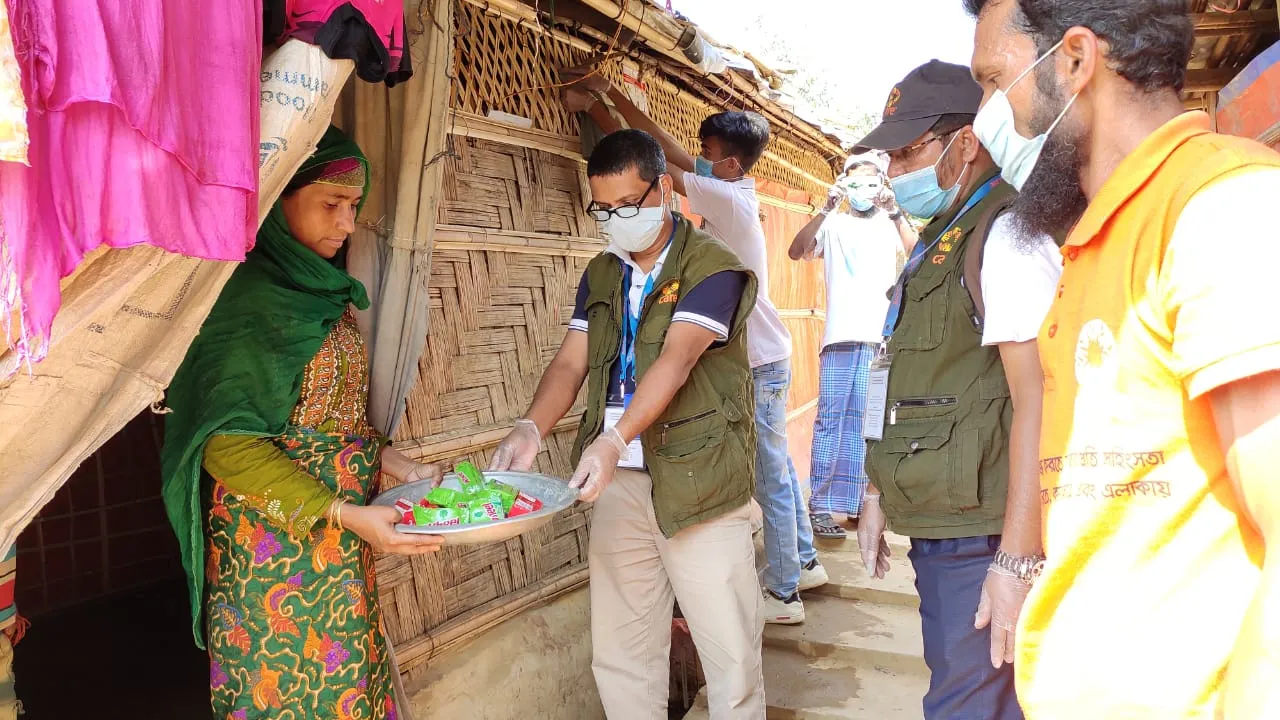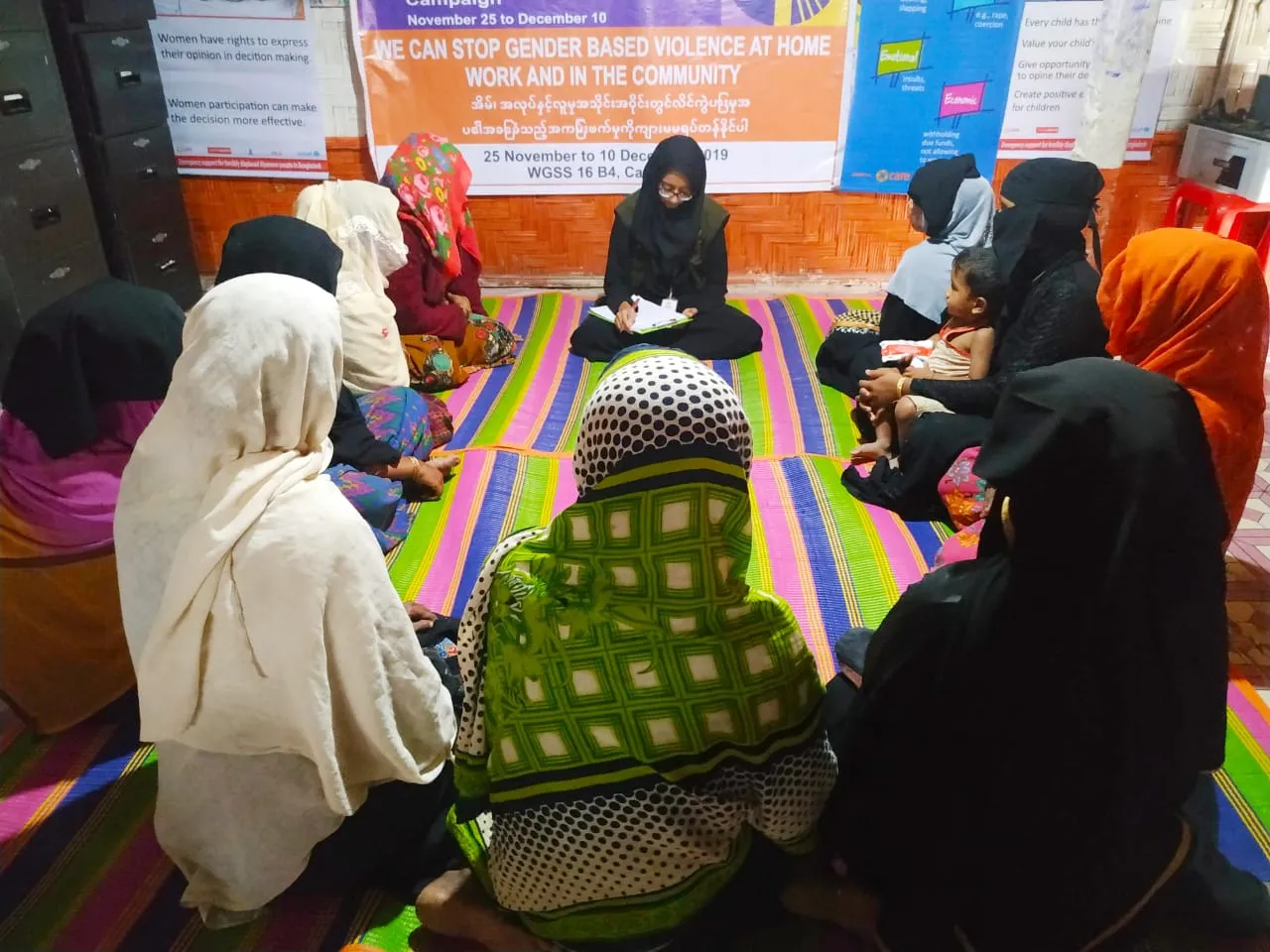Ayesha Siddika, a case worker supporting CARE’s Gender Based Violence (GBV) prevention programs, has been working tirelessly the last three weeks in the Rohingya camp at Cox’s Bazar in Bangladesh, which looks deserted despite being the largest refugee camp in the world as people practice social distancing. Her family is concerned but she goes on undeterred. Her focus is clear: the Rohingya community needs to stay safe as even a single positive COVID case could create havoc.
Driven by the same goal, Tayeb Ali Parmanik, who manages a camp with more than 33,000 Rohingya refugees, turns up every day determined to keep them well informed and safe. While he longs to be with his family and his heart misses a beat every time he speaks with his differently abled child, Tayeb knows he cannot leave the mission unaccomplished. He’s responsible for Camp 14 and makes sure that the coordination of all camp-related activities continues unhindered.
At a time when one would have felt secure in the comfort of the family, Anne Dawson, who leads Program Development, is finding strength in being able to make a difference any way she can. Anne spends sleepless nights drawing up proposals to raise funds so that programs can continue uninterrupted. Her family and friends in the U.K. worry for her safety in Bangladesh, while she prays for the safety of friends back home living in isolation and potentially being positive for COVID-19.
Azizul Haque, the Water, Sanitation and Hygiene (WASH) Program Manager, leaves for the camp early each day. He makes sure refugees have access to clean water, the sanitation facilities are up and running, hygiene is maintained around the camp through regular water disposal and spraying of disinfectant continues. It’s not an easy task to ensure the smooth execution of this in an overcrowded camp, but Azizul leads from the front and takes on each day as it comes. He attributes the continuity to his dedicated team.


